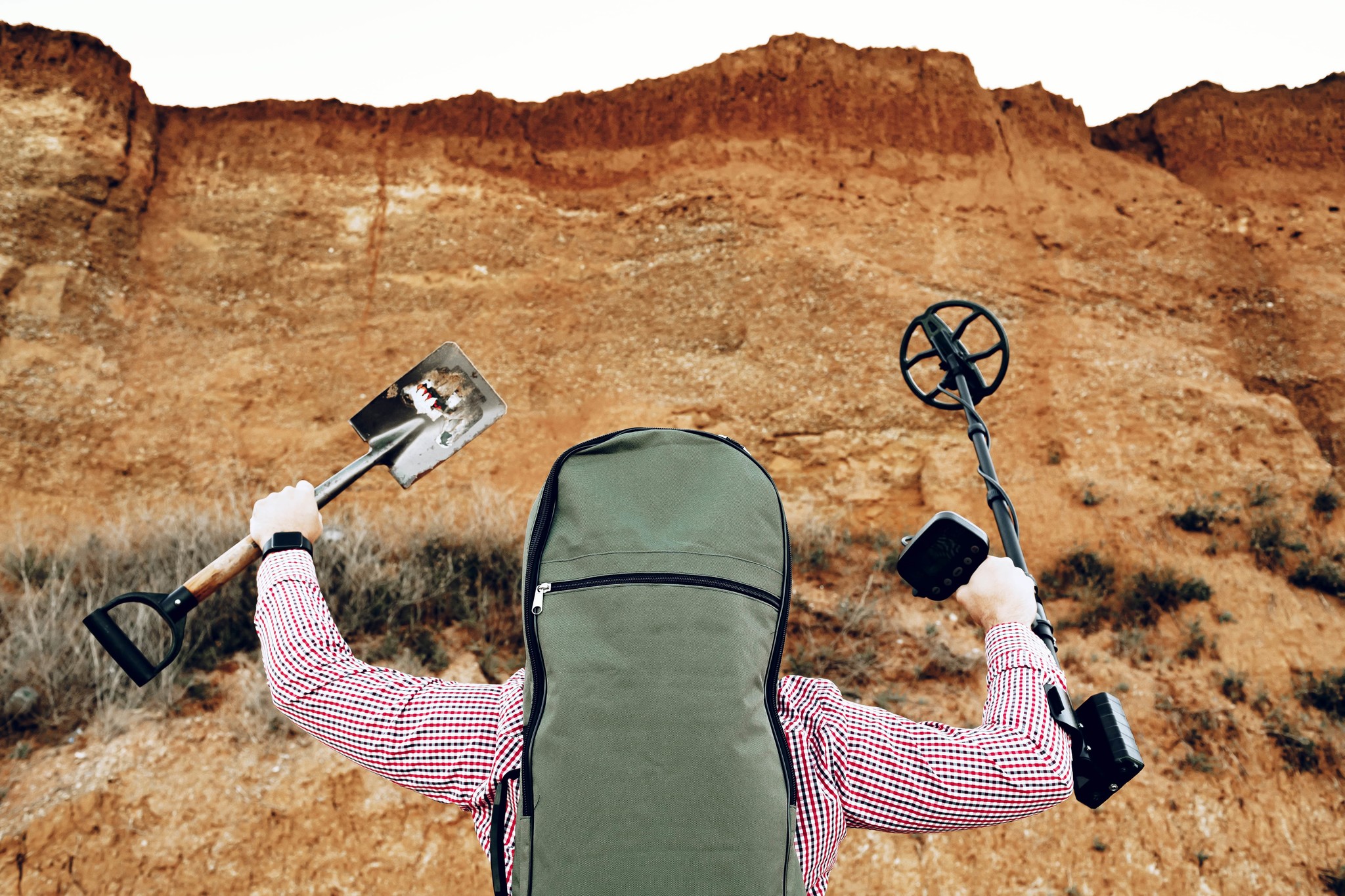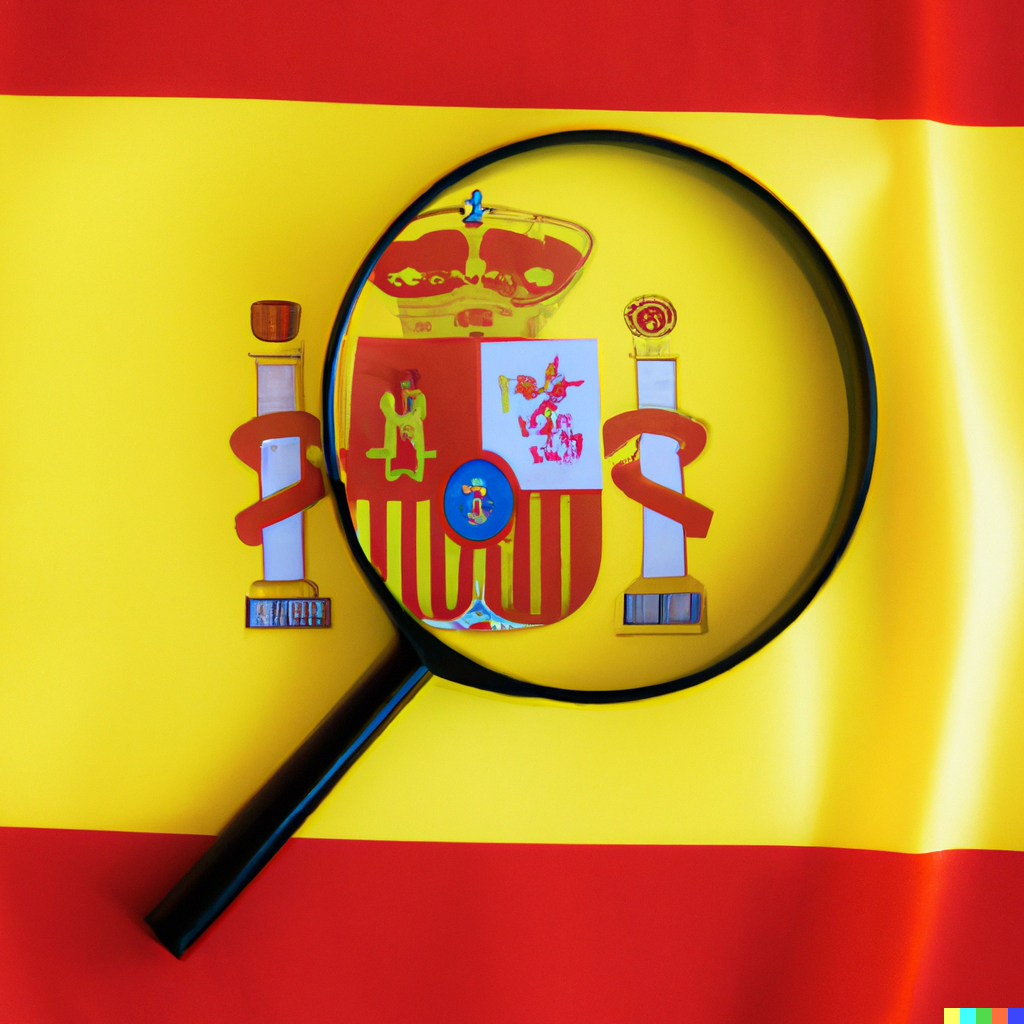Rules for Searching with a Metal Detector in Spain
Metal detecting is a popular hobby worldwide, and Spain is no exception. The country has a rich history, from ancient Roman settlements to medieval castles and villages, and the modern era also has its own historical treasures. But before you go searching for those treasures, it's important to be aware of the rules and regulations that apply to metal detecting in Spain.
General rules for metal detecting in Spain
First and foremost, it's important to know that metal detecting in Spain is regulated by the Ley de Patrimonio Histórico Español, or the Spanish Law on Historical Heritage. This law stipulates that all objects found in Spain that are older than 100 years automatically belong to the state and must be reported as such.
This means that if you find something older than 100 years, you are not allowed to keep it, and you must report it to the authorities. This also applies to objects of cultural significance, such as archaeological finds or items of historical or artistic importance.
Additionally, in Spain, it is prohibited to engage in metal detecting in various cases, which are further elaborated below.
So, if you want to go metal detecting in Spain, it's important to research in advance whether the area you want to search is not protected and to seek permission from the landowner.
Regulations by region
The rules for metal detecting can vary by region in Spain. For example, the Andalusia region has its own legislation regarding metal detecting, which can be stricter than national regulations in some cases.
In Andalusia, for instance, it is forbidden to search near monuments or archaeological sites, and it is mandatory to report any found objects to the local museum. Detectorists are also required to register with the regional authorities before using a metal detector.
Other regions, such as Catalonia and Valencia, have similar rules and regulations regarding metal detecting.
Metal detecting on beaches
One popular place for metal detecting in Spain is the beaches, especially during the summer months when thousands of tourists visit the country. However, it's important to note that the rules for metal detecting on beaches can vary by municipality.
In some municipalities, metal detecting is prohibited on beaches, while in others, it is allowed under certain conditions, such as respecting the peace of other beachgoers and avoiding protected natural areas on and around the beach. There may also be restrictions during busy periods or events.
Therefore, it's wise to conduct research in advance regarding the rules and regulations that apply to metal detecting on the beach in the specific municipality where you intend to search.

Gold prospecting in Spain
There are several regions in Spain where you can potentially search for gold with a metal detector. Here are some suggestions:
- Asturias
This region in northern Spain is known for its gold mines, which were used by the Romans and later by the Visigoths. You can try searching near old mines like Las Médulas or in the rivers flowing through the region, such as the Nalón. - Andalusia
Another region where gold was mined in ancient times, especially by the Phoenicians and Romans. There are various places to search, such as the Guadalquivir River and the Sierra Nevada mountain range. - Catalonia
The region around Barcelona is known for its gold mines, which were operated by the Romans and later by the Arabs. You can try searching in the rivers that flow through the region, such as the Llobregat and Ter rivers.
Keep in mind that gold prospecting with a metal detector in Spain is subject to the same rules and regulations as searching for other historical items. Therefore, make sure to be aware of the legislation and obtain permission to search in the location you have in mind.
Where not to search in Spain?
There are several areas in Spain where you are not allowed to engage in metal detecting. It's important to avoid these areas to prevent legal issues and to safeguard the protection of cultural heritage.
- Protected natural areas
Spain has many protected natural areas, such as national parks and reserves. Metal detecting is not allowed in these areas to protect the environment and wildlife and prevent soil disturbance from damaging the landscape. - Archaeological sites
It is prohibited to use a metal detector at archaeological sites. These sites are protected due to their historical value, and any use of metal detection can damage the sites and disrupt history. Spain has many archaeological sites, from Roman ruins to medieval castles and villages. - Monuments and historical buildings
Using a metal detector near monuments and historical buildings is prohibited. This applies to all monuments and historical buildings, whether they are protected or not. It's important to respect this rule to avoid damaging the buildings and ensuring the safety of people. - Beaches in some municipalities
In some municipalities, metal detecting is prohibited on beaches. Check local regulations before beachcombing. If metal detecting is allowed, be sure not to disturb other beachgoers and respect the environment. - Private properties without permission
It is prohibited to use a metal detector on private properties without the owner's permission. If you've found an interesting place to search, contact the owner and request permission before starting your search.
It's important to remember that rules and regulations for metal detecting can vary by region, and it's crucial to check local laws before you begin searching. By respecting these rules, we can ensure the preservation of Spain's cultural heritage for future generations to enjoy.
Magnet fishing in Spain
Spanish legislation regarding magnet fishing is currently not entirely clear, and there are no specific rules regulating this activity. In general, it is assumed to be allowed to engage in magnet fishing in public waters, such as lakes, rivers, and canals, as long as it doesn't cause harm to the environment or waterways.
However, it's important to remember that the same rules apply as with metal detecting: if you find something older than 100 years or of cultural significance, you must report it to the authorities and cannot keep it. It is also prohibited to magnet fish in protected areas and on private properties without the owner's permission.
Additionally, it's important to prioritize safety while magnet fishing. Some metal objects retrieved from the water can be dangerous, so it's crucial to handle and dispose of them responsibly.
Reporting finds in Spain
In Spain, all finds that are older than 100 years and/or of historical, artistic, or archaeological significance must be reported to the authorities. This is mandatory under the Ley de Patrimonio Histórico Español, the Spanish Law on Historical Heritage.
If you find something falling into these categories (or if you're unsure), you must report it as soon as possible to the nearest office of the Guardia Civil, the Spanish police unit. They will examine the object and, if necessary, pass it on to the relevant archaeological or cultural institution.
In some regions, such as Andalusia, it is also mandatory to report finds to the local museum, as often indicated on the region's or municipality's website where you plan to search.
Failure to report finds can result in hefty fines and even legal prosecution. Therefore, it is of great importance to always report your finds and adhere to the rules. This way, the authorities can ensure the preservation of important historical and cultural treasures for future generations.
Come prepared when exploring in Spain
While metal detecting can be an exciting hobby, it's essential to act responsibly and abide by the rules and regulations. By respecting and protecting Spain's history, we can ensure that future generations can also enjoy the country's rich cultural heritage.
Furthermore, it's important to be respectful of the environment where you search. Do not leave litter behind and fill in any holes you may have dug neatly.
Finally, remember that it's not just about the treasures you find, but also about the experience of searching itself. Enjoy the nature, history, and culture you encounter during your searches and share these experiences with others.
Looking to buy a metal detector for your search in Spain?
Planning to go metal detecting in Spain? Considering purchasing one? We can provide you with expert advice tailored to help you make the best choice for your search. Order your metal detector easily online!
Please note: Detect Metal Detectors is not responsible for any future changes in laws. The searcher is solely responsible for researching and adhering to the laws and regulations at all times.






